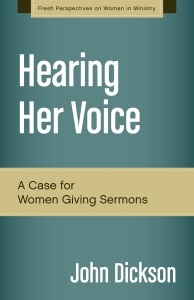 Many of us who live and work in foreign contexts are working with the churched.
Many of us who live and work in foreign contexts are working with the churched.
When I say churched I am speaking about those people who have been enculturated within a society where the institutional church looms large.
In such contexts the Church’s function is often to dispense salvation. The church is the one-stop-shop that’s attended twice per year to get what is needed for eternity. More often than not the churched know of God in a vague abstract sense. They know about Jesus and his death in as much detail as you or I know about Joan of Arc and her death. Yep, we’ve seen the movie:)
How does one reach these people? That is, how does one communicate the life-giving truth of the gospel to those who have not heard it yet? Here are a few things that have become a part of the way that I do it:
1. Know their theology
If we do not know what they believe how can we with good conscience rip them away from the church through which they think they are being saved? We need to be very diligent in understanding what they believe and why so that we can be sure that our actions and message is not in fact dividing the body of Christ.
What should we get to know? Understand the role of their church in salvation. Get know what they mean by salvation. Clearly understand the place of the sacraments and the role they play in salvation. Work out what authority they attribute to the Bible and also to tradition. These points in particular are crucial.
2. Understand their theological language
This is distinct though closely related to the first point. Just because you hear the same words being used does not mean that you are talking about the same thing. So for example, when an Eastern Orthodox believer states that they are saved by faith, we protestants should on face value heartily agree. Yet if someone was to probe a little deeper the disparity between what the EO christian believes and what a protestant believes becomes apparent. Ask questions to understand what they mean when they use theological terms.
3. Use common points of agreement for discussion and study.
It’s a no-brainer, but rarely done. What normally happens is that we jump to the differences, like icons, candles, papal authority, etc. Engaging with commonality was Paul’s method at the Areopagus that day in Acts 17. This is a good starting point because there is often commonality to be found in the person and work of Jesus. Well, great! Why don’t we start with Jesus.
Avoid the contentious issues and begin with Jesus. In Colossians this is how Paul worked. The church is struggling because fine-sounding arguments have permeate the church which has displaced the gospel. What does he do? He doesn’t tackle the apparent error head on until he has prepared the foundation. Paul firstly explains who Jesus is and then he goes on to explain the gospel. Only then does he get stuck into the issue at hand.
4. Don’t treat them like a non-Christian
This is an interesting point that taps into our need to be sensitive. The churched consider themsleves to be Christians, and they often assume to know everything (don’t we all!) that they need to know. Therefore to come at them with all the answers and the ‘truth’ is a fast track to causing offense and shutting down any opportunities for good discussion. Be careful with how they perceive your take on their Christianity.
5. Use the Bible
Once again it sounds like a no-brainer, but so often the Bible is often sidelined in favour of topical and spaghetti style discussions. Get the Bible out and establish what the Bible has to say about the common points of interest. Avoid saying things like, ‘God said…’ and ‘The Bible says…’ and ‘Jesus said…. Unhelpful! Demonstrate the authority of the Bible in your own faith by using it properly in discussion, taking into account the context of the passage and its place in the Bible’s big picture. Use the Bible to deal with the issues, but also model its importance and how to use it.
5. Be open to learning from them
In my study of Eastern Orthodoxy over the past 4 years I have come to appreciate some of their theology. Let’s give credit where it is due. Let’s show humility by genuinely wanting to understand what they believe. It is poor form indeed to merely want to reach them without giving them the opportunity to convince you of their ideas and beliefs. If we ourselves are seeking the truth then there is no need to be scared of genuinely weighing up what they will present.
6. Don’t discount the idea that the churched might be in our own (protestant) churches
Don’t assume the gospel, teach it.























